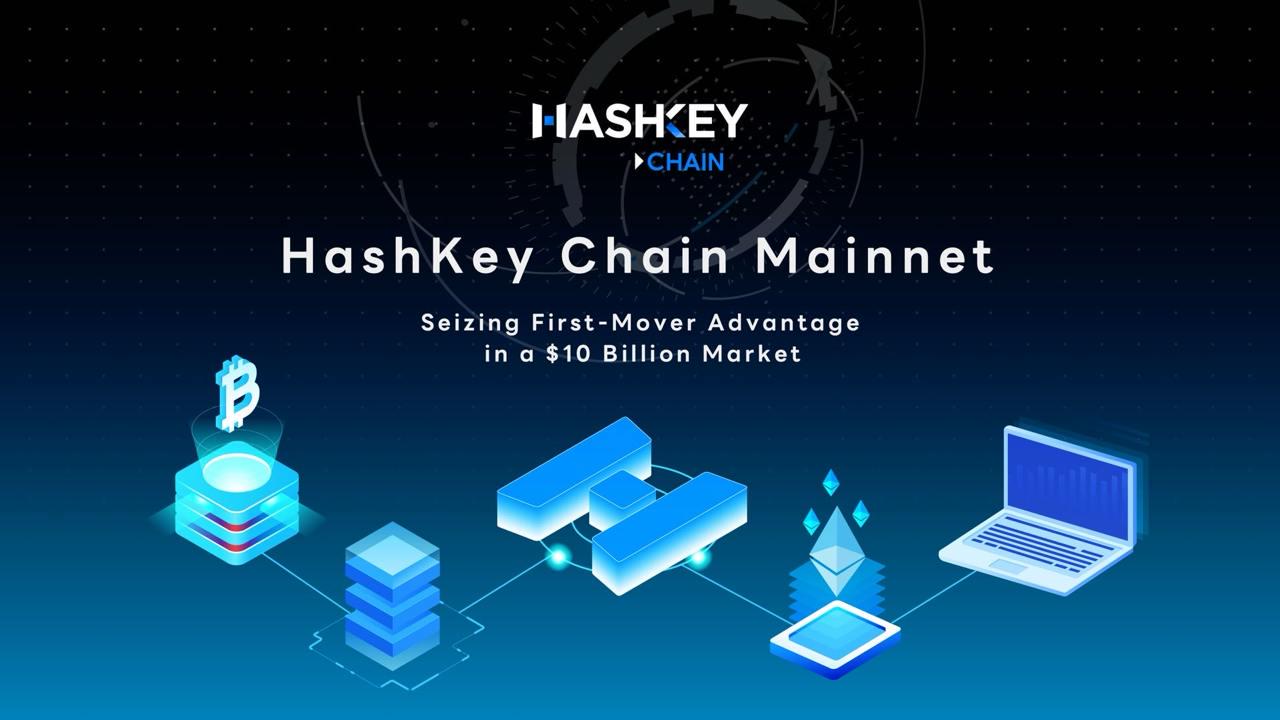
On December 18, HashKey Chain, a public chain launched by HashKey Group, announced that its mainnet has been officially launched. This major progress not only marks a key step for HashKey Chain in building a compliance-friendly and innovative on-chain financial infrastructure, but also means that its service scope has expanded beyond traditional L2 solutions.
HashKey Chain relies on OP-Stack technology, dedicated to improving transaction speed and reducing handling fees, bringing users a more efficient and convenient transaction experience. OP Stack is an open source development framework that supports the OP mainnet. It consists of a variety of software components to form Optimism's L2 Rollup, which is used to create an interoperable L2 blockchain network. It simplifies the construction process of the L2 blockchain, allowing developers to customize the L2 network according to their needs, thereby accessing Ethereum and sharing its security and resources.
On November 11, HashKey Chain officially opened its testnet to developers and users. During the testnet period, a total of more than 24.72 million transactions were completed on the HashKey chain, more than 860,000 wallet addresses were registered, the average block time was 2 seconds, the gas fee was as low as 0.1 Gwei, 50 projects were successfully deployed, and 300,000 community members actively participated.
HashKey Chain is an extremely developer-friendly L2 public chain that supports the Ethereum Virtual Machine (EVM). Developers can easily migrate smart contracts and DApps based on Ethereum. This compatibility greatly reduces the difficulty of development and improves ecological interoperability. As a Layer 2 solution, HashKey Chain expands the network capacity of the blockchain through Rollup technology, making the user experience smoother and providing developers with a wider range of application scenarios. In a laboratory environment, the latest TPS of the HashKey Chain test network can reach 400 tps, which not only achieves the goal of significantly reducing transaction fees and increasing transaction throughput, but also provides users with a more economical and affordable trading environment.
After the mainnet launch, the HashKey Chain ecosystem focuses on BTCFi, PayFi, RWA and stablecoins, aiming to build a financial infrastructure and full-stack Web3 solutions that connect Web2 and Web3. This not only reflects the unique competitive advantages of HashKey Chain, but also highlights the mission and determination of HashKey Group as an industry pioneer.
HSK, the native token of HashKey Chain ecosystem, has started spot trading on HashKey Global, KuCoin, Gate.io, BingX, MEXC and other mainstream exchanges on November 26. HSK is also the ecological currency of HashKey Group, which can be used in a wide range of scenarios such as transaction fee discounts within the HashKey ecosystem, exclusive token priority purchase rights, node verification rewards, etc. HSK holders will also enjoy the governance and decision-making power of HashKey Chain.
The total supply of HSK tokens is 1 billion, of which 65% is used to support mid- and long-term ecological construction, 30% is allocated to the team, and 5% is used as a reserve fund. During the initial token generation (TGE) phase, the circulation is set at 11%, totaling 110,000,000 tokens, and the rest of the ecological pool is released linearly within 48 months after the TGE. The remaining part of the ecological pool after the TGE will all be distributed to community supporters and builders through ecological airdrop incentives, developer Grant Program (Atlas Grant), liquidity incentives, and in various business scenarios of HashKey. This approach makes the issuance of HSK more transparent and fair, ensuring a long-term and sustainable ecology.
HashKey Chain CEO Kay said: "The successful launch of the mainnet is not only a major technological breakthrough, but also the result of our team's long-term hard work. The latest OP-Stack and Rollup technologies have expanded the network capacity of the blockchain, making the user experience smoother, and creating a safe, efficient and convenient all-round development environment for developers, helping them build disruptive decentralized applications on this compliant, friendly and innovative public chain."
In addition, Kay mentioned that the successful launch of the mainnet is also of great significance to the entire HashKey Group. "HashKey Chain connects the existing ecology and business of HashKey Group to form an open, decentralized financial system accessible to everyone worldwide. All ecological links promote each other and jointly provide nutrients and vitality for the entire HashKey Group's Web business landscape."
In order to help developers build the HashKey ecosystem, HashKey Chain launched the $50 million Atlas Grant program on December 11, aiming to deeply explore high-quality projects in the Web3 field and provide comprehensive empowerment to achieve exponential growth in the HashKey Chain application layer and on-chain users. The first phase of the Atlas Grant prize pool is $10 million in HSK Tokens, and the recipient project teams will receive non-dilutive funding, technical guidance, cooperation opportunities, and the opportunity to participate in hackathons and other activities.
Application link: https://github.com/orgs/HashkeyHSK/discussions/new?category=session-1 .












